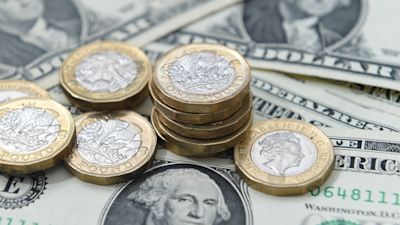Pound falls to lowest level against dollar since 1985

The pound has slipped to a new 37-year-low against the dollar after the US currency surged while holders of sterling worried about the size of the borrowing needed to deal with soaring energy bills.
Sterling dipped as low as 1.1403 dollars on Wednesday afternoon, surpassing the last dip of 1.1412 seen at the outset of the Covid-19 pandemic in March 2020.
The dollar has been performing strongly recently with it hitting a 24-year-high against the Japanese yen and a 20-year-high against the euro in recent weeks.
During times of global economic uncertainty, the dollar usually performs well as investors view the US currency as extremely safe.
New Chancellor of the Exchequer Kwasi Kwarteng spoke to business leaders on Wednesday, highlighting that increased borrowing would be needed to fund energy plans, which are due to be announced on Thursday.
Investors are worried about the chance of recession on top of the touted £100bn package to deal with the energy crisis.
Andrew Bailey, governor of the Bank of England, highlighted the strength of the US currency during a Treasury Select Committee meeting earlier on Wednesday, as he explained to MPs the recent weakness in the pound.
Russ Mould, investment director at AJ Bell, said: "Sterling’s recent drop has also been linked to the dual impact of rocketing inflation and the gloomy economic outlook, which last month saw the Bank of England forecast five consecutive quarters of recession."
The fears of increased borrowing also pushed benchmark gilt yields beyond 3%, to the highest in around 11 years.
Want a quick and expert briefing on the biggest news stories? Listen to our latest podcasts to find out What You Need To Know
Confidence in the pound was also weakened after Huw Pill, chief economist at the Bank of England, told MPs that Prime Minister Liz Truss’s touted energy support for households could reduce inflation compared with previous forecasts.
The central bank previously predicted inflation could pass 13% in October.
However, the potential tempering of inflation expectations could mean reduced action over interest rates by the bbank.